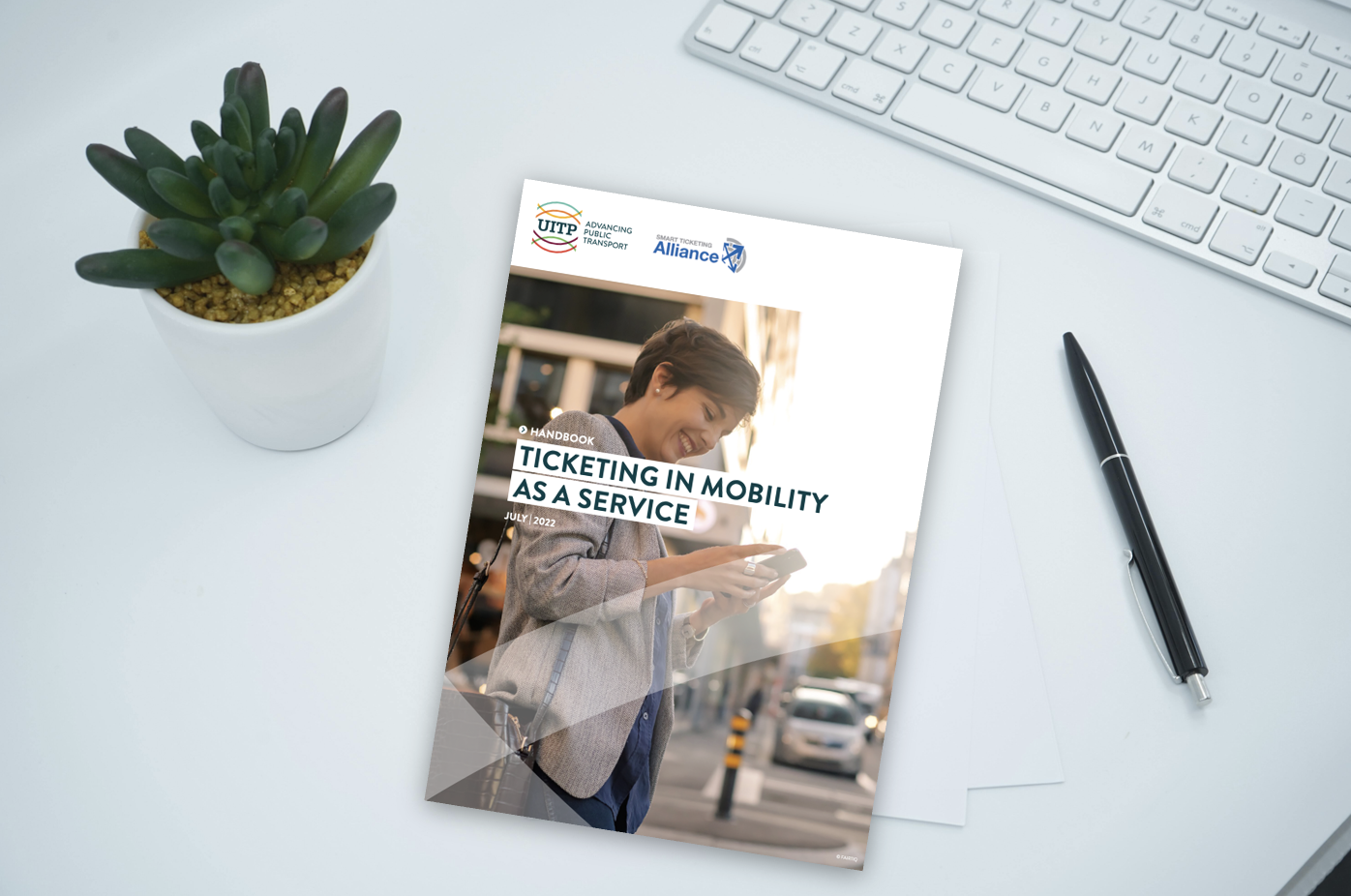Great news for the industry!
After almost 2 years of hard work, the Handbook “Ticketing in Mobility as a Service” – jointly prepared by the International Association of Public Transport (UITP) and the Smart Ticketing Alliance (STA) – has been released!
The report covers the well-known and much debated world of ticketing in public transport. The interesting aspect, however, is that it looks at it in an innovative way, that is under the lens of the Mobility-as-a-Service (MaaS) revolution.
Why was there the need for such a report?
Because, as the Handbook says, ticketing is the gateway to MaaS.
You have probably heard us say that people always travel twice, first when they plan their trip, maybe comfortably sitting on their couch, and second when they actually perform their trip. Consequently, we see MaaS as being made up of two pillars: information and access.
Information is the possibility to look for and find information on mobility services, for example knowing at what time a certain bus is arriving at the stop or whether and where an e-scooter is available for a ride. In the present world, information’ scalability is guaranteed by the presence of data standards.
A different story applies to access: physically accessing the desired mobility service means paying for the service while interacting with a turnstile, a validator or the booking software of a bike-sharing service, which are often closed systems developed by several different suppliers with a number of different technologies. This is particularly true for public transport, in which closed-loop systems are the dominant approach and in which the legacy of the past is still very strong. Public transport is the backbone of MaaS, therefore its ticketing system needs to be ready to scale up and communicate with third parties’ systems.

The joint UITP and STA Handbook focuses exactly on this need by responding to three main challenges:
- Digitization gap in ticketing at local, regional and national level;
- Lack of understanding of stakeholders’ needs and roles;
- Exchange of data to ensure trust, privacy and competition issues.
The feedback and recommendations coming out of the report are of particular value because they are not the result of a single brain but of more than 45 members representing authorities, operators, ticketing players, MaaS integrators and associations.
Thanks to our core expertise concerning software for ticketing and MaaS, OpenMove, as a STA member, is honored to have contributed to this work and to had the opportunity to feature a MaaS project deployment that we have carried out in the Italian Northern Province of Trentino.
The report is available for download at the following link.
https://www.uitp.org/publications/ticketing-in-mobility-as-a-service/

